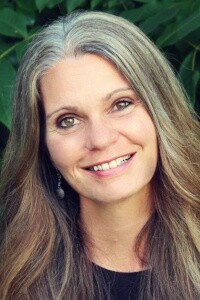“Do not judge so that you will not be judged.” – Matthew 7:1
If you’ve spend a good deal of time in Christian circles, it stands a good chance you’ve encountered judgmental people. You know the type. Those who take some sort of pleasure in making assumptions and judging others based upon appearance or gossip. As well as those who flaunt their righteousness and actually portray that they feel sorry for those who are “deceived” or significantly less-than-holy.
I know for myself when I came out as a lesbian, I was instantly judged by Christians. Not all of them of course, but a good many. Forget the fact that I pledged my love and service to Jesus for the last fifteen years. Forget the fact that I led Bible study groups, taught my children the Word of God, attended a building called “Church” faithfully, and for a long time gave more than 10% of my income to staff. All of a sudden, because I had acknowledged the fact that I was a lesbian, I was deceived, evil, disgusting, sinful, and so on.
Judgment simply means making assumptions about another’s moral or personal behavior. I was judged by my attraction to the same sex for a relationship. People are judged all the time. Emo/Punk kids are judged for their dark dress and piercings. Those who live in the ghetto are judged for their lack of money. Christians are good in a lot of ways, but unfortunately they are quite good at passing judgment as well.
In the Sermon on the Mount, Jesus instructed his followers not to judge. Also, when the woman caught in adultery was brought to him by the scribes and Pharisees, he told them he that is without sin, throw the first stone. That woman was in fact doing something immoral, but Jesus did not judge and criticize her.
Not every denomination thinks homosexuality is sinful. Thankfully, more and more are welcoming this population in and treating us as “humans.” They love and encourage, not pass judgment and exclude. This is what homosexuals want and need. The issue of attraction to the same sex ought not be an issue or topic. Growing in God ought to be of main concern.
During the first few months after coming out as a lesbian was difficult for me spiritually. I struggled and darkness seemed to surround me. I am thankful that God put a couple around me that really encouraged me and in that darkness I sought God even more. I persevered through and learned that my relationship with God was not contingent upon going to a building filled with people to sing songs and hear a message. My relationship with God was simply between God and me. I began growing in God again and determined to love and serve God no matter what judgments came my way.
Since that time, I’ve seen some Christians change their mind about homosexuals. I don’t allow my sexuality to become a focus of conversation when talk about spiritual matters begins because that is not my focus. God, growth in God, and reaching out to others in love is my focus. I’ve learned that growth in God during seasons of adversity or judgment is not dependent upon anyone but me. I encourage you to do the same.

A writer and poet who worked for 12 years in the mental health field, Dominica Applegate is the author of the book Recycle Your Pain: It Has a Purpose and a poetry collection titled The Pain, It Shapes Her World. Her work has been published in Elephant Journal, Mind Body Green, CafeTruth, Sober Living, and The Addiction Advisor.
